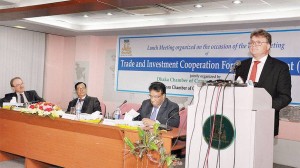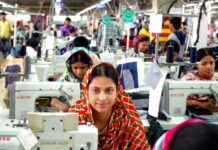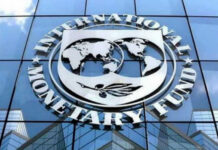“These tragedies [Rana Plaza and Tazreen Fashions] and a pattern of poor labour rights will drive buyers and investors from Bangladesh to other countries,” Assistant USTR Michael Delaney told a lunch meeting at the Dhaka Chamber of Commerce and Industry (DCCI) in Dhaka yesterday.
The international community is concerned over the reports of harassment and violence that newly formed unions are facing, he raised the concern a day before Bangladesh and US are holding their first meeting of the Trade and Investment Cooperation Forum Agreement (Ticfa) in Dhaka today.
“The industry and the country cannot afford to let this happen. It is critical to the future success of the industry that these problems be addressed directly and that effective mechanisms for labor-management relations be developed,” he added.
The private sector – both Bangladeshi and international – and other stakeholders have a crucial role to play, but ultimately it will be up to the government to coordinate all of these efforts and solve these challenges, he pointed out.
Delaney, however, said all stakeholders in readymade garment sector in Bangladesh are working hard for a sustainable solution of the problems of the sector.
“There has, without question, been a tremendous effort among all the stakeholders to develop concrete and sustainable solutions to the worker rights and safety challenges Bangladesh faces,” he said.
“So far we have seen a great willingness on the part of some elements of the private sector to roll up their sleeves and help address the labor challenges that the industry faces.”
The USTR official said Washington is committed to working with Dhaka as it endeavors to undertake the worker rights and safety reforms set out in the GSP Action Plan and to working with all stakeholders to help ensure that the benefits of trade and development are widely shared in Bangladesh.
Delaney came to Dhaka to attend the first Ticfa meeting to be held today. He said a full range of trade and investment issues would be discussed at the inaugural meeting.
“We look forward to establishing a Ticfa Labor Affairs Committee and a Ticfa Committee on Women’s Economic Empowerment where we can jointly work on these important issues with an interagency and inter-ministerial team of experts,” he said.
However, trade experts suggested that Bangladesh should not agree to form such committees on bilateral nature as Dhaka has made much progress on the issues under the aegis of multilateral umbrella.
President of American Chamber of Commerce and Industry in Bangladesh Aftab ul Islam urged for enhancing bilateral trade between the two countries.
President of BGMEA Atiqul Islam said they were showing zero tolerance in terms of abiding by the building code. He demanded duty-and-quota-free access of Bangladesh products to the US market.
In 2013, bilateral trade between the two countries exceeded $6bn, including over $5 billion worth of exports from Bangladesh.
Source: UNBConnect










